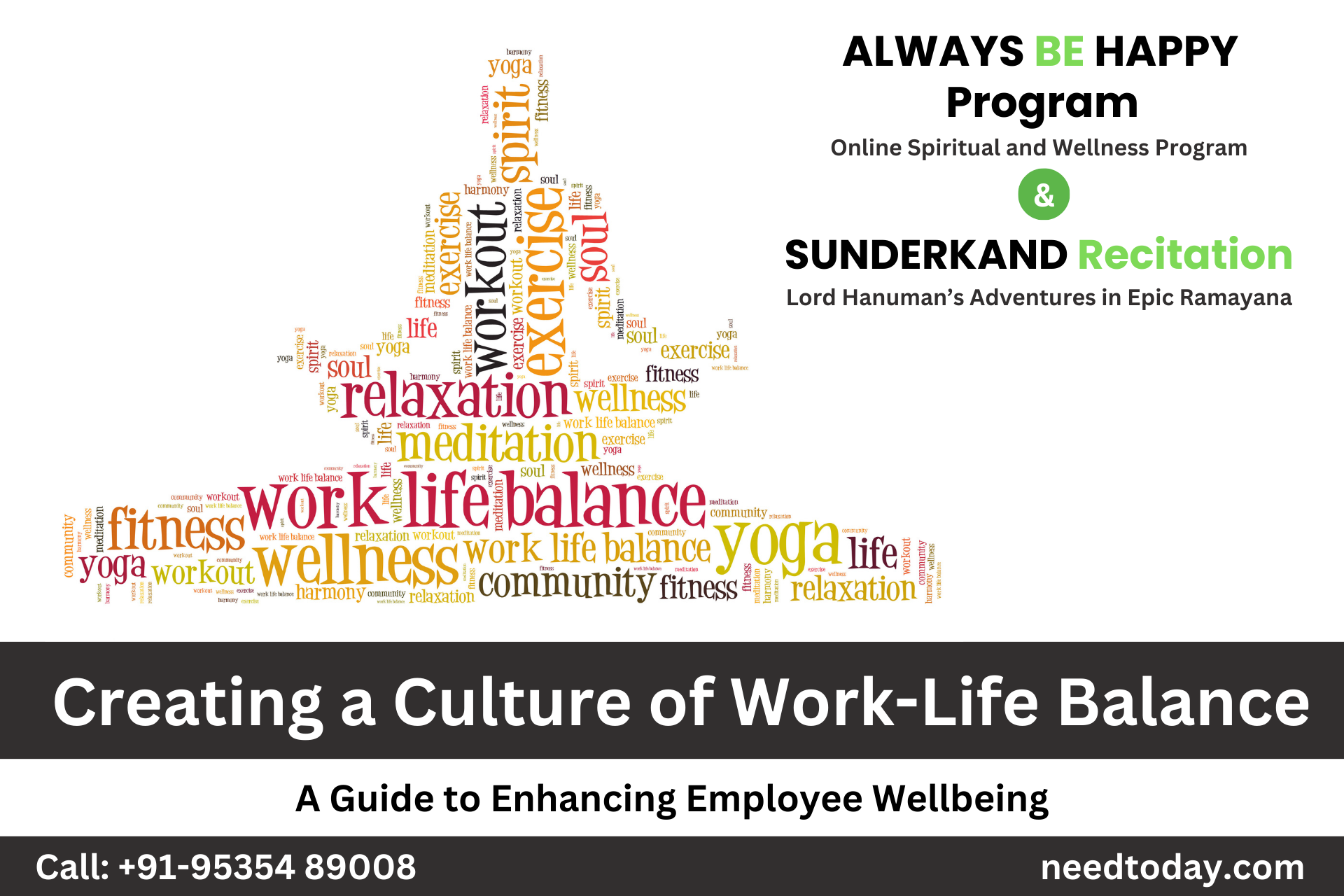In today's fast-paced and competitive work environment, achieving a healthy work-life balance has become increasingly crucial. As organizations strive to promote employee wellbeing, foster a positive company culture, and boost overall productivity, the concept of work-life balance takes center stage. In this guide, we'll delve into the importance of work-life balance, its benefits for both employees and employers, and practical strategies for creating a culture that prioritizes this essential aspect of modern work.
The Importance of Work-Life Balance
Work-life balance refers to the equilibrium between the demands of one's job and personal life. It's not just about clocking in and out at the office; it's about ensuring that employees have time and energy to devote to their families, hobbies, self-care, and personal pursuits. A healthy work-life balance has a profound impact on employee wellbeing, mental health, and job satisfaction.
Benefits for Employees:
Reduced Stress: A proper work-life balance reduces stress and burnout, leading to better mental and emotional health.
Enhanced Productivity: Employees who have time for relaxation and personal activities return to work rejuvenated and are more productive.
Improved Health: Balancing work and personal life positively influences physical health, leading to fewer illnesses and improved overall wellbeing.
Higher Job Satisfaction: When employees have time for their passions and relationships, they tend to feel more satisfied with their jobs.
Benefits for Employers:
Increased Retention: Companies that value work-life balance tend to retain employees for longer periods, reducing turnover and recruitment costs.
Attracting Top Talent: A reputation for promoting work-life balance helps attract skilled professionals who are looking for a supportive work environment.
Higher Productivity: Employees who are well-rested and satisfied with their lives bring higher levels of productivity and creativity to their work.
Better Morale: A culture that prioritizes work-life balance fosters a positive atmosphere, boosting team morale and collaboration.
Strategies for Creating a Work-Life Balance Culture:
Lead by Example: Leaders and managers should exemplify work-life balance by maintaining reasonable work hours and avoiding sending emails during off-hours.
Flexible Scheduling: Offer flexible work hours or remote work options, enabling employees to tailor their schedules to their personal needs.
Set Clear Boundaries: Encourage employees to set boundaries between work and personal time, avoiding work-related tasks during evenings or weekends.
Unplug Encouragement: Encourage employees to disconnect from work-related communication when they are not working. Avoid expecting immediate responses during non-work hours.
Wellness Programs: Implement wellness initiatives such as yoga classes, mindfulness workshops, and health challenges to promote physical and mental wellbeing.
Time Management Training: Provide training on effective time management techniques to help employees accomplish their tasks efficiently, reducing the need for overtime.
Vacation Encouragement: Encourage employees to take their allotted vacation days and avoid situations where unused days pile up.
Regular Check-ins: Managers should have regular one-on-one meetings to discuss workloads, priorities, and potential challenges that might affect work-life balance.
Recognition and Rewards: Recognize employees who consistently maintain a healthy work-life balance and celebrate their dedication to both their work and personal lives.
In Conclusion
Creating a culture of work-life balance is not just a trend; it's a necessity for organizations aiming to attract, retain, and nurture a talented workforce. By valuing the wellbeing of employees, companies can unlock benefits like improved job satisfaction, reduced turnover, and heightened productivity.
ALWAYS BE HAPPY Program is an Online Spiritual and Wellness Program for Self Development along with Sunderkand Recitation.
Always Be Happy Program is a simple spiritual discipline, which combines Gratitude, Prayer, Meditation and Serving the Lord for your self-development and well being, leading to a life filled with Joy
Always Be Happy Program is a multidimensional wellness program, which includes Emotional, Occupational, Physical, Spiritual, Intellectual, Social and Environmental wellness for you to lead a healthier lifestyle.
SUNDERKAND is the fifth book in the epic Ramayana and consists of Lord Hanuman’s adventures.
Always Be Happy Program along with Sunderkand recitation with meaning in Hindi is a 4 hour program by Rajnish Malhotra which can be held at your venue or at our office in Bengaluru.
Always be Happy Program will be a Video session in English which will last for one and a half hours and Sunderkand Recitation with meaning in Hindi will be a Live session which will last for two and a half Hours. The Program can be held at the client venue. The program can also be held at our office in Bengaluru with a seating capacity of 25.
By implementing strategies that prioritize work-life balance, businesses can create a harmonious environment where employees thrive both personally and professionally.










